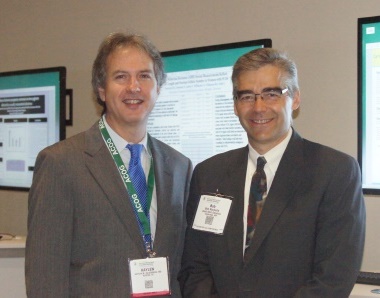–New genetic testing standards cast a wider net in a global population–
 AUSTIN, TX (June 16, 2015) – Using advanced genetic testing, Texas Fertility Center recently identified a man of Japanese descent as having sickle cell trait. Although he was unaware of a family history of the disease, this man was a carrier and could have passed this disorder on to his offspring.
AUSTIN, TX (June 16, 2015) – Using advanced genetic testing, Texas Fertility Center recently identified a man of Japanese descent as having sickle cell trait. Although he was unaware of a family history of the disease, this man was a carrier and could have passed this disorder on to his offspring.
This illustrates why Texas Fertility Center has revised its genetic testing strategy, now offering next-generation DNA sequencing (NGS) screening for genetic disorders to all patients, regardless of ethnicity. This policy shift came on the heels of a study released at the American Society for Reproductive Medicine’s (ASRM) 2014 Annual Meeting.
”Had we simply followed current protocols, this gentleman’s sickle cell trait would have been overlooked,” said Kaylen Silverberg, M.D., one of the study’s eight authors and the medical director at Texas Fertility Center in Austin and San Antonio.
Better and Broader Genetic Screening
In an effort to reduce the chance of genetic disorders in patients’ offspring, fertility centers have traditionally screened patients for diseases that affect select high-risk populations. For example, Caucasians are tested for cystic fibrosis, Jewish patients are screened for Tay-Sachs disease and those of African descent are checked for sickle cell disease.
“As a result of globalization and our emerging multi-ethnic population, the older recommendations are simply no longer valid,” Silverberg said. “Therefore, if we are serious about identifying and eradicating serious genetic disease, we need to broaden our prenatal screening protocols.”
Results from the Next-Gen DNA Sequencing Study
Dr. Silverberg and the study’s other authors, representing Good Start Genetics Inc., Boston IVF, Stanford Fertility and Reproductive Medicine Center, Fertility Centers of Illinois, Huntington Reproductive Centers and Reproductive Biology Associates, screened a total of 4,894 patients.
The patients represented various multi-ethnic combinations. Nearly 200 disease-causing mutations were identified.
- Twelve percent of these mutations would not have been detectable by traditional genotyping assays.
- Eighty-four of 196 pathogenic mutations (43 percent) were found in patients who did not self-identify as being members of any high-risk ethnicity. Fifteen percent of these mutations would not have been detected by traditional genotyping assays.
“This study underscores the benefits – not only of expanding the populations who are offered screening – but also of using the most advanced scientific methodology available, next generation DNA sequencing,” Silverberg added.
About Dr. Kaylen Silverberg
 Dr. Silverberg recently was elected to the board of directors for the Society for Assisted Reproductive Technologies (SART). Dr. Silverberg, honored by the American Fertility Association with their national Family Building Award, is recognized annually as a Best Doctor in America™. Actively involved in infertility research, Dr. Silverberg has published his findings extensively in infertility journals. He is board-certified in obstetrics and gynecology as well as reproductive endocrinology. He is a clinical associate professor in the department of obstetrics and gynecology and the division of reproductive endocrinology/infertility at The University of Texas Southwestern Medical Center in Austin.
Dr. Silverberg recently was elected to the board of directors for the Society for Assisted Reproductive Technologies (SART). Dr. Silverberg, honored by the American Fertility Association with their national Family Building Award, is recognized annually as a Best Doctor in America™. Actively involved in infertility research, Dr. Silverberg has published his findings extensively in infertility journals. He is board-certified in obstetrics and gynecology as well as reproductive endocrinology. He is a clinical associate professor in the department of obstetrics and gynecology and the division of reproductive endocrinology/infertility at The University of Texas Southwestern Medical Center in Austin.
For more information, please visit www.txfertility.com.














Comments are closed.